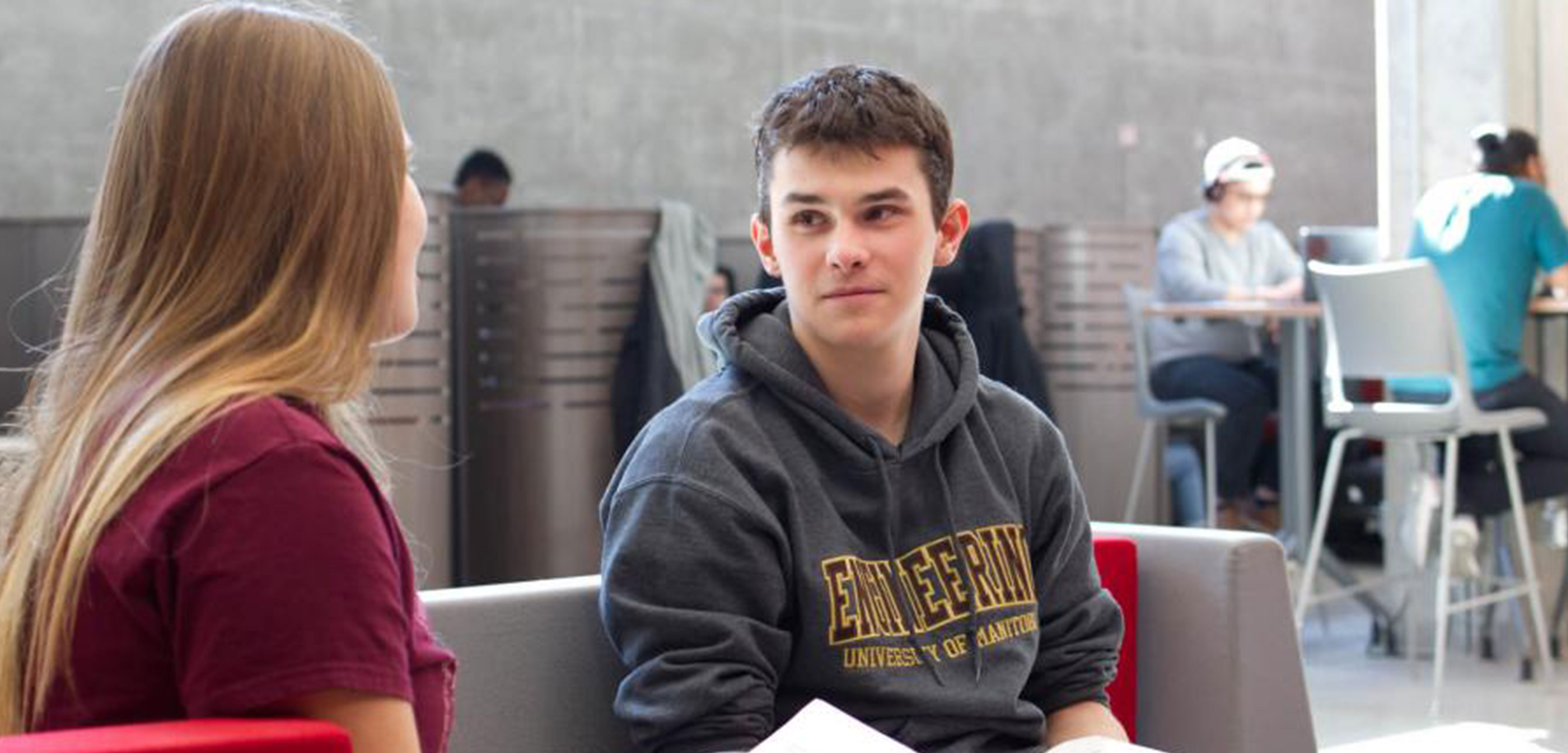

An overall average of 65% is required for all students applying to most CBU credit programs based on high school performance. Additional requirements may apply to specific programs.
If space permits, CBU will accept all candidates who can verify that they have met the minimum entry requirements established by CBU for the programs in which they wish to enroll.
Note: CBU does not guarantee that applications completed after August 1, will be processed for September registration.
Students may enter Cape Breton University by any of three paths, subject to restrictions of space and program capacity.
High school graduates who satisfy the admission requirements of their chosen program.
Students who transfer from another post-secondary institution and who are in good standing at that institution and who satisfy the admission requirements for their chosen program. Transfer students may be able to obtain credit in their CBU programs for courses taken elsewhere.
Students may also be admitted as non-traditional learners.
Students who enter CBU through any of the above paths and who have not made a final decision in a program may register as students in No Specific Program.
Applicants will be required to submit official documents (e.g. transcripts from other institutions) when they apply for admission. Normally these documents are sent directly from the other institutions to CBU.
Students will also require the approval of the relevant School Dean to register at another university or college while attending CBU.
TOEFL score of 550 (paper test), 213 (computer test), or 80 (internet test)
IELTS Academic (and IELTS Indicator) score of 6.5 with no band below 6.0
CAEL score of 60 (this includes CAEL Online)
MELAB score of 85
Pearson PTE (Academic) score of 59
CanTEST score of 4.5 (reading & listening), 4.0 (writing)
Duolingo English Test score of 115 for undergraduate programs, diplomas and certificates.
One look at island life and it becomes clear: CBU is a special place that is focused and determined to make the world a better place. The passion for innovation and collaboration runs deep in our history and fuels our future.
The engineering transfer program is offered at CBU on an associate basis with Dalhousie University. CBU is one of the few Associated Universities to offer the first two years of all six engineering disciplines. These include civil, environmental, electrical, industrial, mechanical and chemical engineering. CBU delivers the first two years of the four-year Bachelor of Engineering program, with the final two years delivered at Dalhousie University.
The first year of the program is common for all six discipline options. At the end of the first year, you must make a decision on a specialty. Application is made at this time to both CBU and Dalhousie for a seat in the particular discipline of choice.
During year two, you will be registered at both CBU and Dalhousie University. Years three and four will be completed at Dalhousie University.
Students can also combine a BSc in either chemistry or mathematics with the Engineering Diploma. This program requires a third year of study at CBU to complete the BSc, followed by two years at Dalhousie University to complete the BEng.
More info: Click here
ENGI-1101 Intro. to Professional Engr. (3 Credits)
ENGI-1161 Shop Practice (3 Credits)
ENGI-1161L Shop Practice Lab (0 Credits)
ENGI-1163 Statics (3 Credits)
ENGI-1163L Statics Lab (0 Credits)
ENGI-1164 Strength of Materials (3 Credits)
ENGI-1164L Strength of Materials Lab (0 Credits)
ENGI-1165 Engineering Graphics (3 Credits)
ENGI-1165L Engineering Graphics Lab (0 Credits)
ENGI-1166 Dynamics (3 Credits)
ENGI-1166L Dynamics Lab (0 Credits)
ENGI-1167 Engineering Statics (3 Credits)
ENGI-1167L Engineering Statics Lab (0 Credits)
ENGI-1168L Fluid Mechanics Lab (0 Credits)
ENGI-2101 Engineering Economics (3 Credits)
ENGI-2101L Engineering Economics Lab (0 Credits)
ENGI-2103 Technical Engr. Economics (3 Credits)
ENGI-2103L Technical Engr. Economics Lab (0 Credits)
ENGI-2105 Surveying (3 Credits)
ENGI-2105L Surveying Lab (0 Credits)
ENGI-2107 Water & Waste Water (3 Credits)
ENGI-2107L Waste & Waste Water Lab (0 Credits)
ENGI-2111 Modelling /Optim. for Engineer (3 Credits)
ENGI-2111L Modelling/Optim. for Eng Lab (0 Credits)
ENGI-2131 Engineering Fluid Mechanics (3 Credits)
ENGI-2131L Engr. Fluid Mechanics Lab (0 Credits)
ENGI-2133 Environmental Engineering (3 Credits)
ENGI-2133L Environmental Engineering Lab (0 Credits)
ENGI-2134 Computer Programming (3 Credits)
ENGI-2135 Engineering Design/Graphics (3 Credits)
ENGI-2135L Engr. Design/Graphics Lab (0 Credits)
ENGI-2163 Engineering Dynamics (3 Credits)
ENGI-2163L Engineering Dynamics Lab (0 Credits)
ENGI-2164 Engineering Thermodynamics (3 Credits)
ENGI-2164L Engineering Thermodynamics Lab (0 Credits)
ENGI-2165 Fund. of Chemical Engr. (3 Credits)
ENGI-2165L Fund. of Chemical Engr. Lab (0 Credits)
ENGI-2166 Engineering Electric Circuits (3 Credits)
ENGI-2166L Engr. Electric Circuits Lab (0 Credits)
ENGI-2167 Engineering Digital Logic (3 Credits)
ENGI-2167L Engineering Digital Logic Lab (0 Credits)
ENGI-2168 Circuit Analysis (3 Credits)
ENGI-2168L Circuit Analysis Lab (0 Credits)
ENGI-2169 Engr. Strength of Materials (3 Credits)
ENGI-2169L Engr Strength of Materials Lab (0 Credits)
ENGI-2171 Thermo- Fluid Engineering I (3 Credits)
ENGI-2171L Thermo- Fluid Engr. I Lab (0 Credits)
ENGI-2173 Thermo-Fluid Engineering II (3 Credits)
ENGI-2173L Thermo-Fluid Engr. II Lab (0 Credits)
ENGI-2174 Environmental Science (3 Credits)
ENGI-2174L Environmental Science Lab (0 Credits)
ENGI-2701 Special Topics in Engineering (3 Credits)
ENGI-4101 GIS Systems & Mapping (3 Credits)
ENGI-4101L GIS Systems & Mapping Lab (0 Credits)

Possible Career Paths
Civil engineer
Chemical engineer
Environmental engineer
Mechanical engineer
Consulting engineer

Medical Insurance: 744 per year